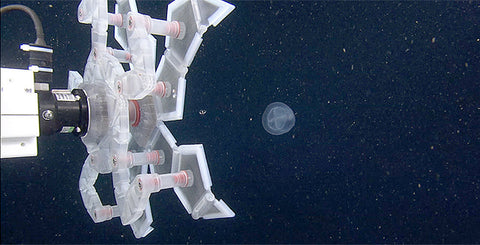In the vast expanse of our solar system, few places hold as much intrigue for astrobiologists as Venus. Once regarded as Earth's "sister planet" due to its similar size and composition, Venus has since revealed itself to be a harsh and inhospitable world, with searing temperatures and a toxic atmosphere. Yet, beneath the clouds of sulfuric acid, scientists believe there might be clues to one of the most profound questions of our time: the existence of life beyond Earth. In this blog post, we delve into the quest for signs of life on Venus and the vital role of NASA's DAVINCI mission in astrobiology.
Venus: The Unlikely Abode
A Hostile Environment: Venus is a planet of extremes, with surface temperatures hot enough to melt lead and an atmosphere dominated by carbon dioxide and sulfuric acid clouds. These conditions make it one of the most inhospitable places in our solar system.
The Mystery of the Clouds: Despite its harsh surface conditions, Venus's clouds, located in its upper atmosphere, have long intrigued scientists. They contain an enigmatic molecule called phosphine, which on Earth is associated with microbial life.
The DAVINCI Mission
Deep Atmosphere Venus Investigation of Noble gases, Chemistry, and Imaging (DAVINCI): NASA's DAVINCI mission is designed to unlock the secrets of Venus's atmosphere and, in the process, seek evidence of life.
The Descent and Instruments: DAVINCI will deploy a probe that will plunge through Venus's atmosphere. Equipped with a suite of instruments, the probe will measure noble gases, study the chemistry of the atmosphere, and capture high-resolution images of the surface.
The Phosphine Puzzle
Phosphine and Life: Phosphine is a molecule that can be produced by microbial life on Earth. Its detection in Venus's clouds has raised the tantalizing possibility of life existing in the planet's upper atmosphere.
Alternative Explanations: While phosphine could indicate life, alternative non-biological processes could also produce this molecule. DAVINCI aims to provide critical data to resolve this mystery.
The Astrobiological Significance
Astrobiology's Holy Grail: The search for extraterrestrial life is one of the most profound quests in science. Finding life on Venus, even in microbial form, would revolutionize our understanding of life's potential beyond Earth.
A Step Forward: DAVINCI represents a significant step in astrobiology, demonstrating our commitment to exploring the most unlikely places in our solar system in search of life's signature.
The search for life on Venus, a once-overlooked planet, has become a frontier in astrobiology. NASA's DAVINCI mission, with its daring plunge into Venus's caustic atmosphere, holds the promise of uncovering clues that could reshape our understanding of life's existence beyond Earth.
As we await the results of this ambitious mission, we are reminded of the boundless human curiosity and determination that drive us to explore the cosmos. Venus, with its potential for life hidden amidst its extreme conditions, beckons us to unravel the mysteries of the universe and confront the profound questions of our existence. DAVINCI's role in astrobiology underscores our commitment to answering these questions and pushing the boundaries of our knowledge.






